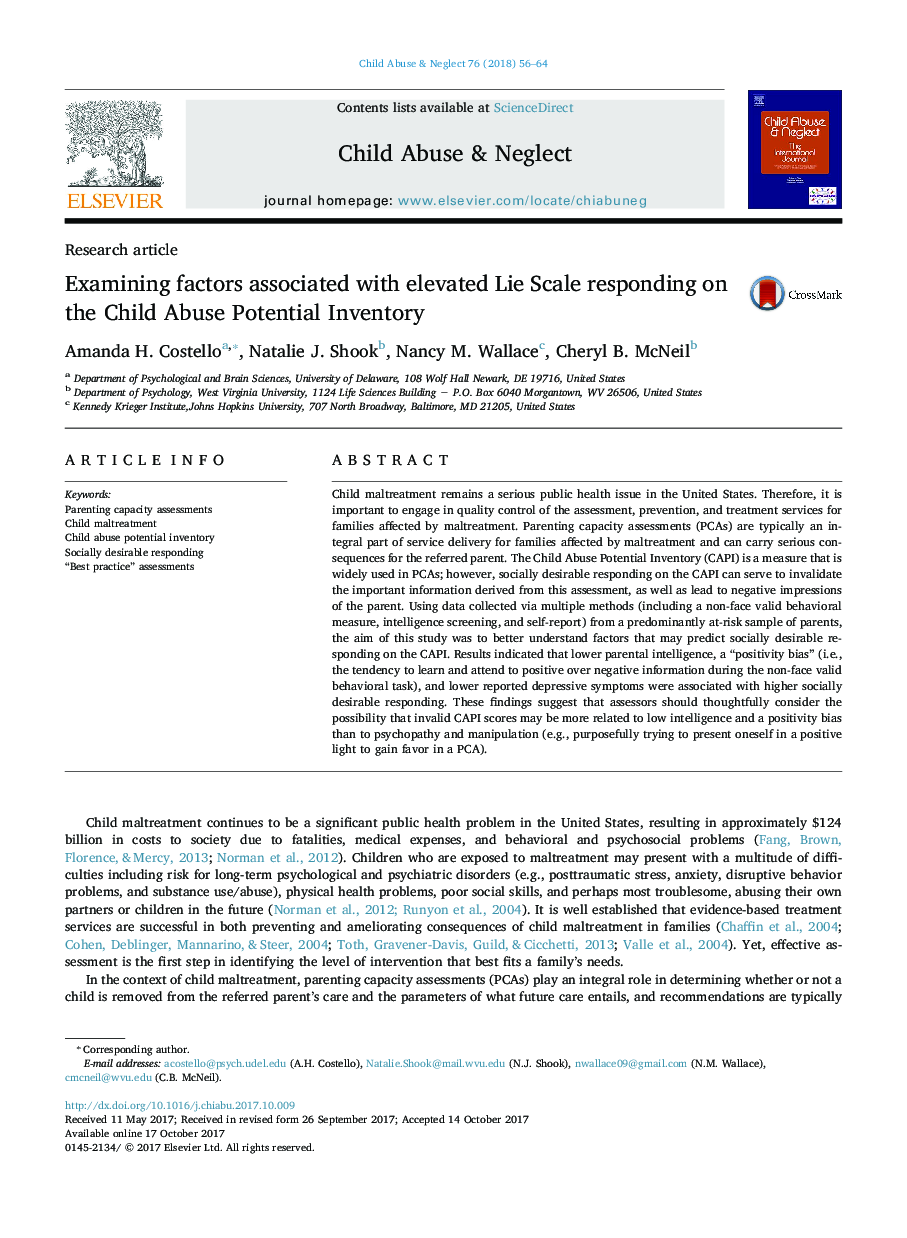| Article ID | Journal | Published Year | Pages | File Type |
|---|---|---|---|---|
| 4935812 | Child Abuse & Neglect | 2018 | 9 Pages |
Child maltreatment remains a serious public health issue in the United States. Therefore, it is important to engage in quality control of the assessment, prevention, and treatment services for families affected by maltreatment. Parenting capacity assessments (PCAs) are typically an integral part of service delivery for families affected by maltreatment and can carry serious consequences for the referred parent. The Child Abuse Potential Inventory (CAPI) is a measure that is widely used in PCAs; however, socially desirable responding on the CAPI can serve to invalidate the important information derived from this assessment, as well as lead to negative impressions of the parent. Using data collected via multiple methods (including a non-face valid behavioral measure, intelligence screening, and self-report) from a predominantly at-risk sample of parents, the aim of this study was to better understand factors that may predict socially desirable responding on the CAPI. Results indicated that lower parental intelligence, a “positivity bias” (i.e., the tendency to learn and attend to positive over negative information during the non-face valid behavioral task), and lower reported depressive symptoms were associated with higher socially desirable responding. These findings suggest that assessors should thoughtfully consider the possibility that invalid CAPI scores may be more related to low intelligence and a positivity bias than to psychopathy and manipulation (e.g., purposefully trying to present oneself in a positive light to gain favor in a PCA).
